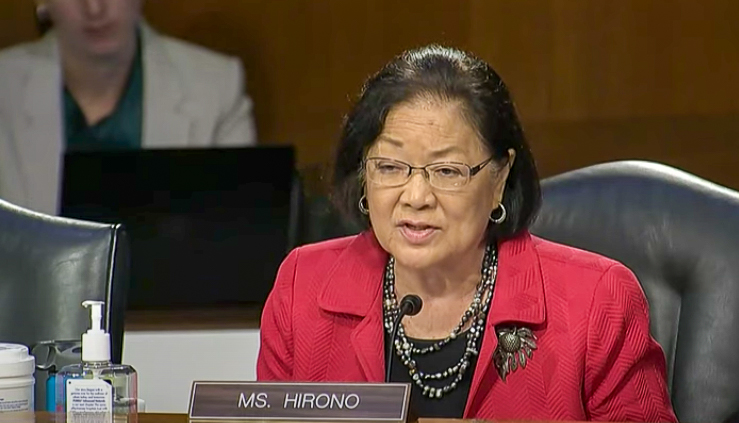Hirono condemns proposed 50% cut in cost of living allowance for military families in Hawaiʻi

US Senator Mazie K. Hirono (D-HI), member of the Senate Armed Services Committee, questioned a panel of Department of Defense officials about a proposed 50% cut to the cost of living allowance for military families in Hawaiʻi during a SASC Personnel Subcommittee Hearing.
During her line of questioning, Sen. Hirono highlighted Hawaiʻi’s high cost of living and emphasized her opposition to the proposed cuts to this allowance.
“My office has heard from our Servicemembers in Hawaiʻi that they are deeply concerned about imminent cuts to their cost of living allowance,” said Sen. Hirono during the hearing. “Hawaiʻi has the most expensive cost of living of any state in the country.”
Currently, Servicemembers stationed in Hawaiʻi and other posts outside the continental US receive an Overseas Cost of Living Allowance, or OCOLA, to offset the higher prices of goods and services. Earlier this year, however, the Department of Defense announced plans to reduce OCOLA benefits for servicemembers in Hawaiʻi by as much as 50%.
Sen. Hirono continued, “Today, the cost of a gallon of gas in Hawaiʻi is $4.85, more than a dollar above the national average of $3.46. A gallon of milk in Honolulu is $7.28 compared to the national average of $4.41. The cost of housing in Hawaiʻi is higher than any other state—I could go on. As we continue to combat inflation, the thought of slashing the cost of living allowance for Servicemembers in Hawaiʻi is absurd.”
During the hearing, Sen. Hirono also highlighted the investments from President Biden’s budget in resources for Servicemembers—including expanding Pre-K, suicide prevention, sexual assault prevention and response, and reproductive health care services—and asked about what the DoD is doing to support family planning services.
As a member of the Senate Armed Services Committee and Chair of the Armed Services Subcommittee on Readiness and Management Support, Sen. Hirono said she is focused on overseeing the safe closure of Red Hill, rebuilding and modernizing military infrastructure in Hawaiʻi and around the country, strengthening US relationships with partners and allies, and advancing DOD’s work to combat climate change.












